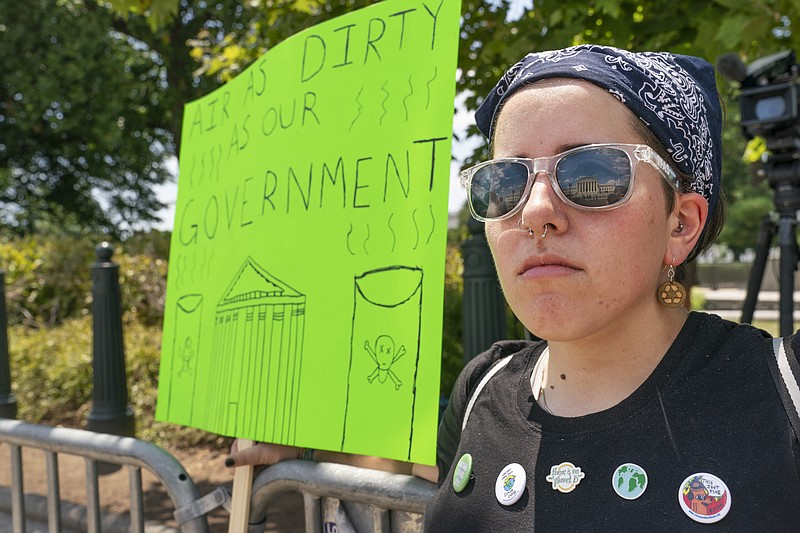By MARK SHERMAN
Associated Press
WASHINGTON (AP) -- In a blow to the fight against climate change, the Supreme Court on Thursday limited how the nation's main anti-air pollution law can be used to reduce carbon dioxide emissions from power plants.
The decision, said environmental advocates and dissenting liberal justices, was a major step in the wrong direction -- "a gut punch," one prominent meteorologist said -- at a time of increasing environmental damage attributable to climate change amid dire warnings about the future.
The court's ruling could complicate the administration's plans to combat climate change. Its detailed proposal to regulate power plant emissions is expected by the end of the year. Though the decision was specific to the EPA, it was in line with the conservative majority's skepticism of the power of regulatory agencies and it sent a message on possible future effects beyond climate change and air pollution.
President Joe Biden aims to cut the nation's greenhouse gas emissions in half by the end of the decade and to have an emissions-free power sector by 2035. Power plants account for roughly 30% of carbon dioxide output.
"Capping carbon dioxide emissions at a level that will force a nationwide transition away from the use of coal to generate electricity may be a sensible 'solution to the crisis of the day,'" Chief Justice John Roberts wrote in his opinion for the court.
But Roberts wrote that the Clean Air Act doesn't give EPA the authority to do so and that Congress must speak clearly on this subject.
"A decision of such magnitude and consequence rests with Congress itself, or an agency acting pursuant to a clear delegation from that representative body," he wrote.
In a dissent, Justice Elena Kagan wrote that the decision strips the EPA of the power Congress gave it to respond to "the most pressing environmental challenge of our time."
Kagan said the stakes in the case are high. She said, "The Court appoints itself--instead of Congress or the expert agency--the decisionmaker on climate policy. I cannot think of many things more frightening."
Biden, in a statement, called the ruling "another devastating decision that aims to take our country backwards." He said he would "not relent in using my lawful authorities to protect public health and tackle the climate crisis."
And EPA head Michael Regan said his agency will move forward with a rule to impose environmental standards on the energy sector.
EPA Administrator Regan said the agency "will move forward with lawfully setting and implementing environmental standards that meet our obligation to protect all people and all communities from environmental harm."
Senate Democratic leader Chuck Schumer of New York said the consequences of Thursday's decision "will ripple across the entire federal government, from the regulation of food and drugs to our nation's health care system, all of which will put American lives at risk."
The court held that Congress must speak with specificity when it wants to give an agency authority to regulate on an issue of major national significance.
Underlying all these issues is a lack of action from Congress, reflecting bitter, partisan disagreements over the role of the federal government.
The justices heard arguments in the case on the same day that a United Nations panel's report warned that the effects of climate change are about to get much worse, likely making the world sicker, hungrier, poorer and more dangerous in the coming years.
